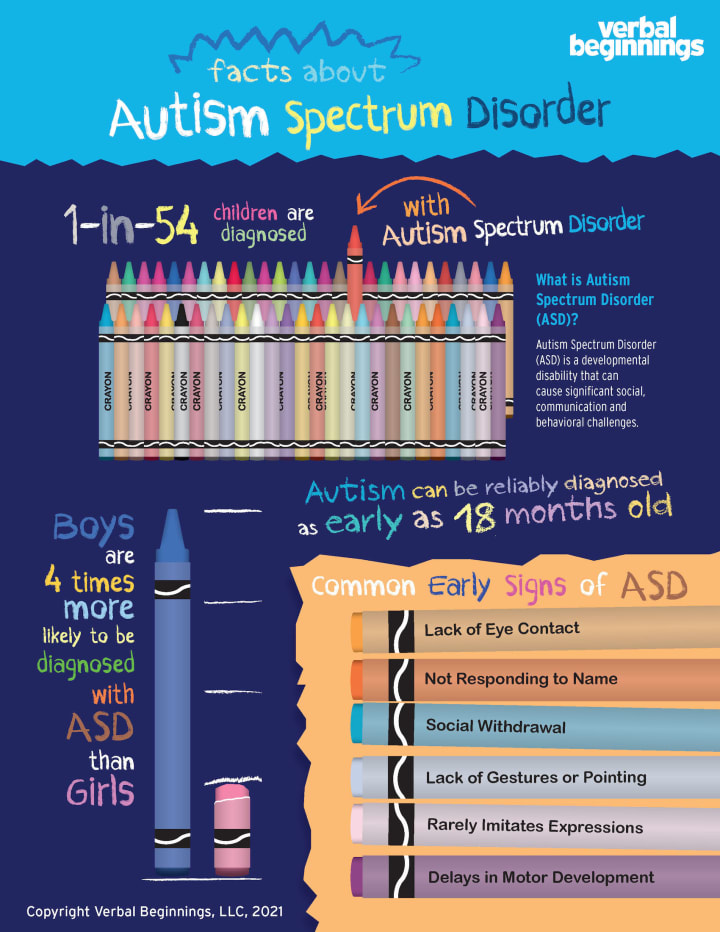5 things I’ve learned about having a son with high functioning autism
Food for thought

Five things I’ve learned so far about having a son with high functioning autism.

One. Not everyone will understand. Including people close to you.
This was the most difficult to wrap my head around. At nine months we started the referral process, by one I started seeing more defined signs. At this point it was myself and the specialists that saw any red flags at all.
“He’s a boy, they are a bit behind the girls”
“Doctors just go by a guideline, he’s learning at his own pace”
“It’s a phase, he will catch up”
“He seems normal to me”
“My kid does that sometimes too, don’t worry about it”
People dismissing our issues. People questioning the doctors. Making me question myself. I felt so alone. And I was so tired of feeling like nobody believed me, like I was reading into things that weren’t there. At three he was officially diagnosed. And I still have people telling me he might just be misdiagnosed. What I wished people would have said:
“He’s making great progress!”
“You are doing the right thing”
“How are you feeling about it all?”
“Is there anything I can do to help?”
You see, he wasn’t misdiagnosed. You can’t look at someone and see autism. Autism is a different way of thinking, of seeing the world. Where we might see a fun amusement park full of lights and sounds, they might see just pure overwhelming chaos. While we may have panic attacks in high stress situations like an accident, they may have a panic attack from the stress of grocery shopping. Some of us probably fall asleep at night to a nice audio book or light music, for him it’s a weighted blanket, spinning tires and repeating hand movements.

Two. Melt downs are not temper tantrums. Melt downs are sensory issues, not a lack of disciple or acting out to get their own way. For a child with autism melt downs are how they express themselves. They can’t help it. They don’t choose to have a melt down. They are just so overwhelmed by something and this is their way out dealing with it. It’s how they process everything that just seems like too much to handle.

Three. Early Intervention is extremely important. With early intervention and programs like strongest families I’ve learned so much on how to properly parent Maverick and diffuse melt downs. Maverick has learned different coping strategies and has progressed so much in the areas where he is delayed. Starting as early as possible will give him the proper tools, habits, and knowledge to manage everyday life in an appropriate manner moving forward! Everyone has their quirks, for many of us it’s what makes us unique and likable. He is no different, he will still have his quirks and he will still think differently and handle things his own way, but with early intervention he can lead a life where those things will never hold him back and his self awareness will actually help him use his gifts to be more successful. So take all the classes. Try all the referrals and the therapy that’s offered. You won’t regret it.

Four. We all have good days and bad days. As parents it’s hard enough sometimes to get through the day, there will be days where you’re having a bad day and so are they. Be patient with yourself. You’re doing the best you can and your child sees that, it’s normal to lose your cool now and then. And that goes for any parent. Cry if you need to. Take your kids to their grandparents for a night if you need a break. Call a friend to come over and be your shoulder to vent on. Play hookey with work and spend a day at the spa. Say F*<k it every now and then and focus on you. Some days will be amazing, you’ll love every minute of it, you’ll get a break through or a sappy “I love you mommy” and it’ll make it all worth it. Some days will be a struggle but you’ll look at their sleepy faces in bed and be glad you pushed through. So if today you need to fall apart for a few hours so tomorrow you can be a better version of yourself, then go ahead, fall apart, it’s OKAY! That doesn’t make you a bad mom.

Five. Don’t let your fear stop you from making the most of it. Don’t let your fear of a meltdown stop you from taking your child out to experience life. Don’t shelter you or your child. Don’t let the people who don’t understand or might judge you take away from how you live your life. Be as prepared as you can but do all the things. If you need to miss a little therapy to do that family trip, then miss a bit of therapy. If you have to deal with a meltdown at the zoo then just zone out and focus on you and you child and deal with the melt down, then do that. You can leave if you have to. But don’t ever let that stop you. Your child will thank you and still enjoy the same activities as any other child, they may just need to wear earmuffs to the zoo, or go to the amusement park during the day so the lights don’t bother them. Be accommodating without being suffocating. It’s important to experience activities and everyday childhood things when possible. And it’s so much easier now that autism has more awareness. A lot of parades and the like have sensory sensitive areas now, or if not most places if you call ahead will be extra accommodating to you. All you have to do is ask. As hard as that may be, it’s worth it, I promise!

So upon closing I just want to say that if you’re an autism mom, you’re doing a great job, stay positive and remember you’re not alone! If you’re not an autism mom, being aware and understanding is a great start to spread acceptance!
Cheers

About the Creator
Tonya Newman
Just an island girl who loves adventure. Trying to live my best life in this messed up, beautiful world. And writing along the way...
Reader insights
Outstanding
Excellent work. Looking forward to reading more!
Top insights
Easy to read and follow
Well-structured & engaging content
Excellent storytelling
Original narrative & well developed characters
Expert insights and opinions
Arguments were carefully researched and presented
Heartfelt and relatable
The story invoked strong personal emotions
On-point and relevant
Writing reflected the title & theme






Comments
There are no comments for this story
Be the first to respond and start the conversation.